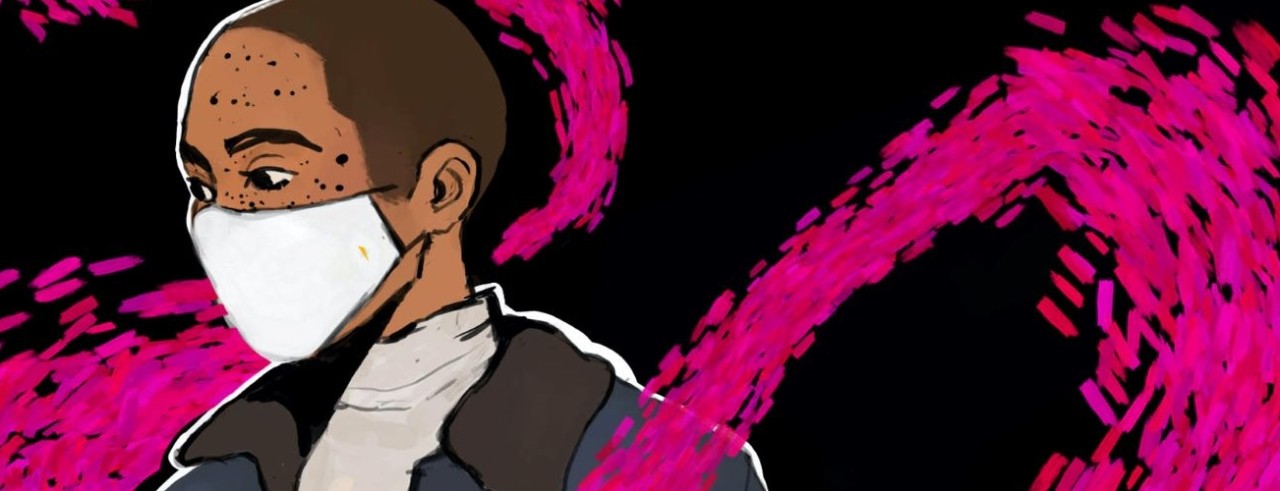
Short Vine: New digital journal for undergraduates makes its debut
Poems, short stories and photography from across the globe featured in UC's digital literary journal
A national literary journal for undergraduates called Short Vine has been launched by the University of Cincinnati’s Department of English in the College of Arts and Sciences.
The digital publication’s name is derived from a popular street near the center of UC’s campus and journal categories include fiction, poetry, literary nonfiction, art and photography.
“Undergraduate literary magazines are important in that they provide an opportunity for new authors, especially young writers who are just starting to test the waters, to discover their voice, their passion and the topics and genres that are meaningful to them,” says faculty adviser Kristen Iversen, professor of English and nationally acclaimed author.
Short Vine, Iversen says, has its roots as a small publication run by student volunteers, originally founded in 2003 by Katie Hartsock, who was at the time an undergraduate student in creative writing, with James Cummins, then a UC professor of English, as the first faculty adviser. Hartsock embarked on an impressive writing career and is currently an assistant professor of English at Oakland University.
In spring of 2020 the UC literary journal was incorporated into the college’s Literary Publishing course, which Iversen teaches. Under her guidance, 14 students in the course transformed the publication into a digitized national-level journal, with a new website, new logo and new focus — to attract contributions from UC and around the globe.
The topic for the first issue was COVID-19, which drew 64 submissions of fiction, poetry and literary nonfiction and nine submissions of art and photography.
Among the poetry published is “Lost Spring” by Madison Hornikel, an undergraduate at Kent State University. “I was absolutely shocked to find out I had been selected. This was the first time I had ever submitted work to be published, and I’m so grateful to the Short Vine team for publishing my poem!”
Who knew the end of the world would be this sunny?
It’s as if someone forgot to tell Persephone
that the mortals’ winter rages on.
Do we confuse her?
Us, shut inside long after the bitter wind’s end
while her flowers bloom just beyond our reach.
The world taunts us from the window,
the trees’ leaves like fingers beckoning that we join them,
the birds’ siren songs luring us from safety.
Odysseus sails us further into terror.
We have stopped up our ears for safety, but his remain open
not out of curiosity, but of spite.
Adviser Iversen says that students taking the course read all the submissions and decide what to accept; they communicate with the authors and artists; they design the cover and the journal pages and they do all the editing and proofreading. Two graduate students who are assistant editors with The Cincinnati Review, UC’s graduate-level literary journal, provided students a training session on proofreading strategies.
“My greatest passion in life is the art of storytelling, so it was a pleasure to see individuals from around the world using stories as a way to process the tumultuous times we are living in.,"
Peter Nelson UC undergraduate and Short Vine fiction editor
Third-year UC student Peter Nelson served as a fiction editor. It was his responsibility to read, select and edit the fictional submissions individuals sent in for publication.
“My greatest passion in life is the art of storytelling, so it was a pleasure to see individuals from around the world using stories as a way to process the tumultuous times we are living in,” says Nelson.
Nelson’s own nonfiction work, “Under Siege,” appears in the first issue. The experience of writing the piece, he says, “was rewarding in and of itself because it reminded me of my versatility as a writer; I usually write science fiction and fantasy, but this time I chose to write nonfiction.”
For most students, this will be their first published work, says Iversen. “They have something important to say, and now that voice has been heard and reached a significant audience.”
Additionally, she says, students in the Literary Publishing class receive valuable writing and editing experience that can translate easily into a job or internship.
Short Vine is now on Submittable, an online service, and accepts submissions from all over the world, as long as the writer or artist is an undergraduate student. Submission for the fall issue will begin Sept. 1, 2020.
Feature image is a cropped section of the Short Vine cover art. Image/Orion Alvarez
Impact Lives Here
The University of Cincinnati is leading public urban universities into a new era of innovation and impact. Our faculty, staff and students are saving lives, changing outcomes and bending the future in our city's direction. Next Lives Here.
Related Stories
UC hosts talk on applying geography to business
Event: April 17, 2025 2:00 PM
UC's Department of Geography will play host to guest speaker and Bentley University Professor Joel Deichmann who will discuss ways economic geography can be applied to business majors.
Paralyzed Veterans of America grant funds UC research with end...
April 15, 2025
University of Cincinnati researchers, in collaboration with end users in the community, have received a $200,000 grant from Paralyzed Veterans of America to design a user-centered, easy-to-use assistive device to help restore hand grasping motions for people with spinal cord injuries/diseases.
UC program tackles health care worker shortage
April 15, 2025
The Healthcare Exploration Through Patient Care course allows University of Cincinnati students to train and work as patient care assistants (PCAs) within the UC Health system, offering them paid, hands-on experience in hospital settings while earning academic credit.


